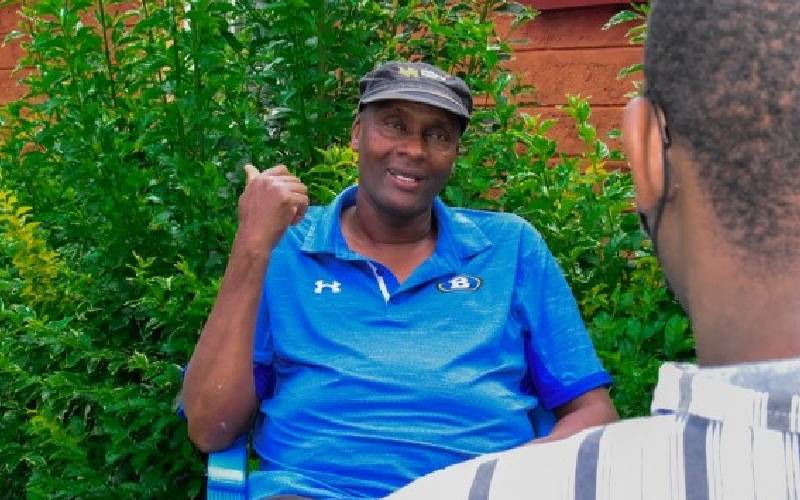×
The Standard e-Paper
Smart Minds Choose Us

Kibet Rono, 56, during an interview at his home in Kesses Constituency, Uasin Gishu County on May 29, 2021. [Sigomba Ramadhan Omar, Standard]
“Fake news would have killed me first before the coronavirus,” Kibet Rono, Covid-19 survivor says as he takes me through his recovery journey.